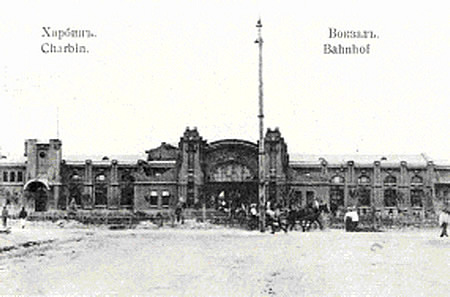In the Name of the Father, and of the Son, and of the Holy Spirit.

When we commemorate whole groups of Saints, we usually mention the great hierarchs among the first, and we have become used to the three great universal hierarchs and teachers — Basil the Great, Gregory the Theologian, and John Chrysostom — always being at the head of the hierarchical assembly. They belong there, because each of them contributed precious gifts [e.g. their writings] to the Church’s theological and moral treasury. So the Church honors them in particular and has established a feast for the three of them together, in addition to the solemn services for their individual feast days. But the feast of the great hierarch whom we commemorate today, the hierarch and wonderworker Nicholas, has a special place of its own.
He did not leave us as rich a spiritual heritage as these three great men, but we all know how greatly the Church reveres him. The Feasts of Saint Nicholas are so splendid that they even remind us of the 12 Great Feasts. Why is that so? Because he lived a life of virtue incarnate: an accessible, comprehensible virtue, close to every man and every heart, even the heart that rejects every other holy thing. That virtue is love; love and compassion.
The Russians like to call Saint Nicholas “Nikola the Merciful” because his miracles are as numerous as the stars of heaven. I would like to remind you of one touching miracle that shows his mercy. This did not happen once upon a time, long ago; it happened in our time, in the city of Harbin [China], where I lived for over 40 years. At the train station in Harbin there was a large icon of Saint Nicholas the Wonderworker, and it was especially venerated by all the travelers. Hundreds of candles were always burning in front of it. People departing by train and the people who came to see them off would light candles, and prayers were constantly going up to the great hierarch for his protection during trips. There was always a crowd in the station because the rail traffic was very heavy.
One day the people who happened to be there (they related this themselves, this is their own story; it was early spring, when the ice breaks up on the Sungari, on which Harbin is located) they saw a Chinese man rush in, soaked from head to toe. He ran up to the icon, threw himself down in front of it, and stretched out his arms to it, saying something in Chinese. The people who knew Chinese said he was thanking the saint for saving him from death.
Here’s what happened: for some reason he was in a terrible hurry to cross the river. But the river is wide, and the ice was flowing along it. He decided to take a chance. As he ran across the ice, jumping from one floe to another, he slipped, lost his balance, and fell under the ice. He was drowning, dying, when he remembered the wonderworking icon. His pagan countrymen revered it too, just as the Russian Orthodox did. As he was drowning, he cried out in despair, “Old man from the train station, help me!” He lost consciousness and went under completely; and he was about to perish…when all of a sudden he was on the riverbank, soaked but alive and unharmed! So he took off and ran — the train station was far away — and he rushed in to the icon and thanked the great hierarch for this evident and amazing miracle of his mercy and love.
The entire Far East, the entire land of China, has a great veneration for Saint Nicholas, you know. Once a Russian hunter had wandered far, far, into the taiga or steppe, and there he came upon a Chinese farmstead where he asked shelter. The friendly master and mistress of the house invited him in, and over their door he saw an icon of Saint Nicholas. He thought to himself, “What can these heathen be doing with it? What do they need it for?” And he wanted to take it. His host was offended and said, “Why do you want to take the Old Man away from us? He’s so kind, he helps us so much. We won’t give him up for anything!”
So not only the Orthodox Church but practically the entire human race honors this great hierarch. Whenever anyone is in trouble or has some need, he turns to Saint Nicholas. This great hierarch hears and fulfills each of the hundreds of petitions that fly to him in Heaven, as long as we ask with firm, strong faith. That’s why the Russian people love Saint Nicholas so much and constantly entreat him: “O Father and Hierarch Nicholas pray to God for us!” Amen.
